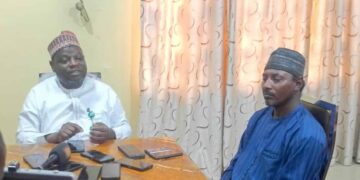Journalists at a two-day workshop organised by Media Rights Agenda (MRA) have demanded legal reforms to protect media rights and press freedom in Nigeria.
The two-day workshop on ‘Laws Affecting the Media and Journalists Safety’, held in Abuja, had in attendance media professionals from broadcast, print, and online media organisations from the North East, North Central, and North West geopolitical zones.
At the end of the training, participants adopted a communique stressing that media freedom is a fundamental feature of democratic governance and should, accordingly, be adequately protected in Nigeria in law and in practice to enable journalists and other media professionals to carry out their duties without fear of intimidation, harassment, or undue interference by the state or other powerful individuals or entities.
The workshop offered practical guidance on ensuring compliance with media-related laws and fostering a collaborative environment for addressing the challenges journalists face.
The workshop sessions covered a range of topics and issues crucial to media freedom and journalism practice, including national, regional, and international frameworks on freedom of expression, media freedom, and the safety of journalists.
The communique noted that media freedom is a fundamental feature of democratic governance and should, accordingly, be adequately protected in Nigeria in law and practice to enable journalists and other media professionals to carry out their duties without fear of intimidation, harassment, or undue interference by the state or other powerful individuals or entities.
The communique, however, noted that the media plays a critical role in ensuring accountability, transparency, and good governance.
“Accordingly, all stakeholders, including the government, judiciary, civil society organisations, and the media community, should work collaboratively to create a legal environment supporting a free, independent, professional media sector.
“Although the 1999 Constitution, as amended, broadly guarantees freedom of expression, there is an urgent need for enhanced legal frameworks to specifically protect media freedom and ensure the safety of journalists and media outlets from all forms of attacks, including arbitrary arrests and detention, physical violence, criminal trials, among others”.
“The increasing misuse and abuse of some laws, such as the Cybercrimes Act, Criminal Defamation Laws, and provisions under the Terrorism (Prevention) Act to silence, harass, intimidate or punish journalists and other media professionals who report on sensitive issues like corruption, abuse of power, poor governance practices, and human rights violations, among others, is extremely concerning and should be checked”.
“Furthermore, such laws should either be repealed outright or amended to bring them into conformity with regional and international norms and standards for the protection of media freedom and to prevent their continued abuse and misuse as tools of repression against the media”.
According to the communique, the emergence and rise of digital media have created more opportunities and platforms for media professionals and citizens to express themselves; ongoing efforts by the government to regulate social media and digital platforms constitute a threat to freedom of expression as these efforts fall outside the well-established parameters for any restriction on the right to freedom of expression to be considered legitimate.
The communique noted that any law proposed to regulate online or digital platforms should adopt a transparent, balanced, and rights-respecting approach to ensure that online journalism can flourish without fear of censorship or undue legal constraints or encumbrance.
“While the Freedom of Information Act, 2011 has made some positive impact in facilitating access to information, which is vital for investigative journalism as well as routine reporting by the media, many challenges, including bureaucratic delays and the persistent culture of secrecy within Government and its institutions, continue to impede the full and effective implementation of the Law. For this reason, the Act is yet to fulfil its main purpose, which is to make information more freely available to the public”.
The communique recommended that a strong and independent Judiciary is crucial in ensuring that courts are not used to legitimise media repression under the guise of enforcing laws.
“Accordingly, the Judiciary should act as a safeguard against politically motivated prosecution of journalists while judges should resist any undue influence on the judicial process from either the governments or private interests”.
The participants expressed their commitment to undertake concrete actions that will protect media rights and freedoms in Nigeria and enhance the legal framework governing media practice in the country.





